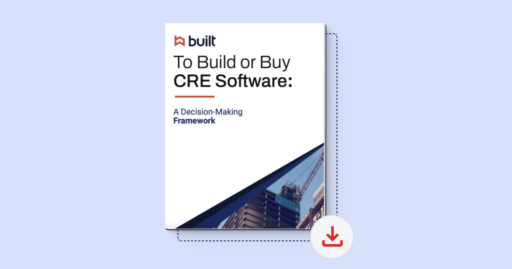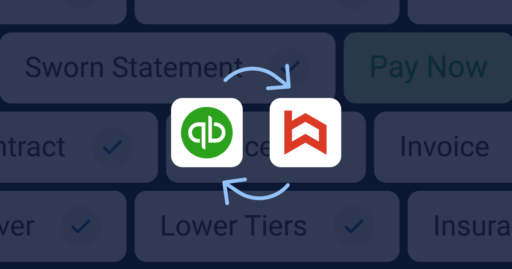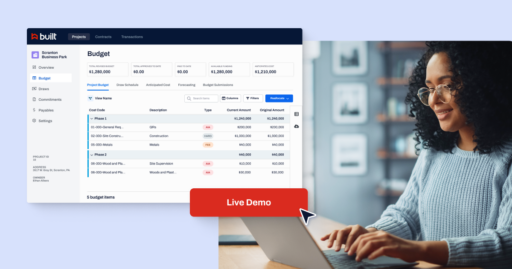What is Vendor Management in Construction?

For general contractors, working with trustworthy, qualified vendors is essential to completing projects on time and within budget. Properly vetting these vendors can be the deciding factor in whether a project is successful, customers are happy, and a business is profitable. Without due diligence, there can be disastrous consequences. Let’s break down what vendor management is, what to look for when prequalifying subcontractors, and how to manage them more efficiently.
What is vendor management in construction?
The phrase “vendor management” refers to general contractors’ procedures to manage their subcontractors, also known as vendors or trade partners. Prequalifying all subcontractors in your network, requesting bids for scopes of work, selecting vendors for a project, ensuring they remain compliant and perform quality work, and monitoring their status on an ongoing basis are all part of vendor management in construction.
For general contractors, supervising vendors is an essential component of daily operations. Construction vendor management concentrates on two specific duties: selecting the right subcontractors and ensuring they can complete their scope of work without any delays.
Depending on the type of organization, a business may utilize vendors from various industries–everything from a janitorial service agency to seafood suppliers. In construction, the most common types of vendors refer to subcontractors: an individual or company hired by a general contractor to complete a specific service or task as it relates to the broader project, such as plumbing, painting, or carpentry. Vendors might be small businesses or huge corporations.
What are the responsibilities associated with managing vendors?
The exact number of responsibilities associated with managing vendors is determined by the size of the project and the size of the vendor. In other words, different projects come with different tasks. General contractors will almost always complete a series of due diligence chores to verify the trade partner they wish to work with can do the job they are being hired for. This is known as prequalification.
Prequalification comes with its own set of subtasks, such as verifying certificates of insurance (COIs). These duties should not be neglected. Without proper prequalification, a project can be a disaster before it even starts. Once a vendor responds to a request for prequalification, they will present documents that verify they are compliant and financially healthy. Some common documents presented during the prequalification process are references, employee profiles, financial history, certifications, and a historical project portfolio.
Another common responsibility is monitoring. This does not mean smothering the vendor to the point of being unable to complete work, but carefully ensuring they are completing the work they were hired for. The main reason monitoring is important is risk mitigation. Of course, trusting a vendor is the goal, but it never hurts to ensure they are working on the correct project, with the correct materials under the correct timeline. It’s also beneficial for general contractors to track the financial, safety, and performance status across the subcontractor’s entire portfolio. Accidents that occur on other projects bring about cash flow issues within their portfolios. These impact your project, too.
While these two tasks only spell out a fraction of what is required when managing vendors, they are both extremely important.
NOTE: Many general contractors rely on multiple technologies to prequalify and monitor their trade partners. With Trade Partner Management from Built, general contractors can streamline the entire vendor management process. Mitigate risk with state-of-the-art monitoring tools in one, easy-to-use platform. Download the e-book to learn more.
How do you effectively manage vendors?
Effectively managing vendors can be broken down into four umbrella tasks. These are communicating expectations, setting deadlines, regularly checking in, and rewarding quality work. Mastering these establishes credibility between general contractor and vendor, and ensures their work is done on time and efficiently.
Time management is one of the most crucial aspects of directing a subcontractor. Before starting any project, decide on a start and end date. Immediately specify expectations regarding the scope of work, the materials required to complete the job, and the timeline. Doing so will ensure the task is completed per the requirements. Additionally, it allows the general contractor power to negotiate any issues that arise or, if required, file a lawsuit should the subcontractor fail to uphold the provisions of the contract.
Ongoing compliance tracking is integral to good vendor management. Even one insurance policy lapse poses an enormous risk to you as a general contractor. It’s crucial to check in regularly with subcontractors. Relying solely on vendors to complete work without performing due diligence is unwise. Fostering an environment of accountability is essential. Subcontractors should be treated the same way as full-time workers. Allowing them to work independently while making sure they are adhering to the deadlines and performance standards will mitigate the risk of a vendor not doing their job. On the flip side, taking advantage of trade partners isn’t smart. It’s necessary to ensure that their needs are satisfied and that they’re paid on time for the work they complete.
These are just a few ways to better manage vendors throughout the lifecycle of any project. Trade Partner Management from Built allows general contractors to use digital workstreams to automate vendor management processes, gain unparalleled access to data about vendors, and mitigate risk.
For a more in-depth view of how Trade Partner Management from Built can revolutionize your business, download this free e-book to streamline your vendor management process.
Want to talk to a subject matter expert at Built? Feel free to schedule a demo to see how it works firsthand.







